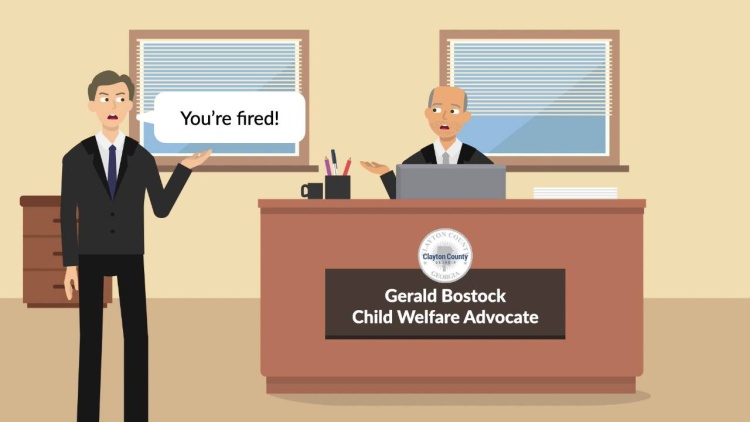Bostock v. Clayton County
United States Supreme Court
140 S. Ct. 1731 (2020)
- Written by Rose VanHofwegen, JD
Facts
Gerald Bostock (plaintiff) worked for 10 years as a child-welfare advocate for Clayton County, Georgia (defendant). Shortly after Bostock started playing in a gay softball league, the county fired him for conduct “unbecoming” a county employee. Bostock sued in federal court for gender discrimination under Title VII of the Civil Rights Act of 1964. The trial court dismissed his claim on the ground that Title VII did not prohibit discrimination based on sexual orientation, and the Eleventh Circuit affirmed. Meanwhile, two other circuit courts reached the opposite conclusion in similar cases. First, skydiving instructor Donald Zarda (plaintiff) was fired a few days after mentioning he was gay. Second, the funeral home where Aimee Stephens (plaintiff) worked for years presenting as a man fired her after Stephens said she intended to live and work as a transgender woman. Unlike Bostock’s case, the circuit courts in the Zarda and Stephens cases ruled that Title VII prohibited firing an employee based on sexual orientation or gender identity. To resolve the split, the United States Supreme Court joined the three cases and granted certiorari to decide them together.
Rule of Law
Issue
Holding and Reasoning (Gorsuch, J.)
Dissent (Alito, J.)
Dissent (Kavanaugh, J.)
What to do next…
Here's why 910,000 law students have relied on our case briefs:
- Written by law professors and practitioners, not other law students. 47,100 briefs, keyed to 997 casebooks. Top-notch customer support.
- The right amount of information, includes the facts, issues, rule of law, holding and reasoning, and any concurrences and dissents.
- Access in your classes, works on your mobile and tablet. Massive library of related video lessons and high quality multiple-choice questions.
- Easy to use, uniform format for every case brief. Written in plain English, not in legalese. Our briefs summarize and simplify; they don’t just repeat the court’s language.





